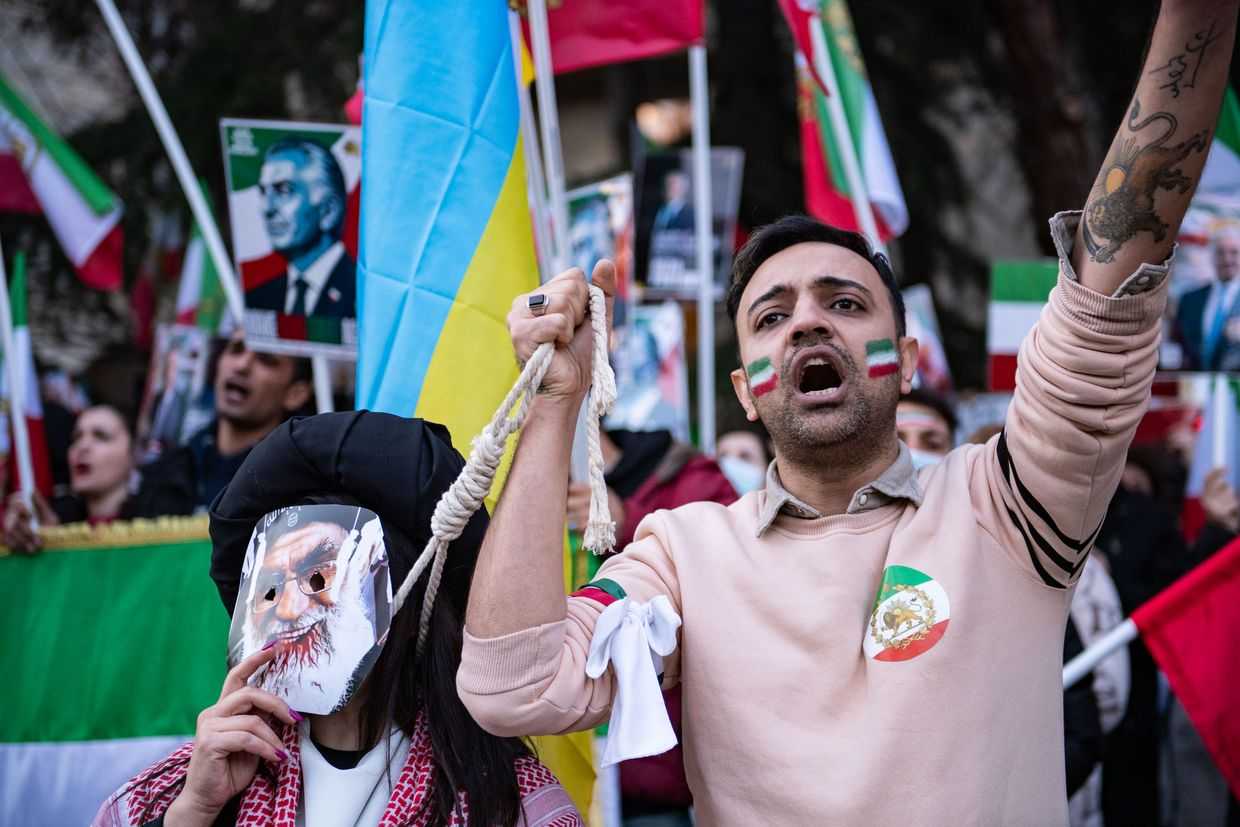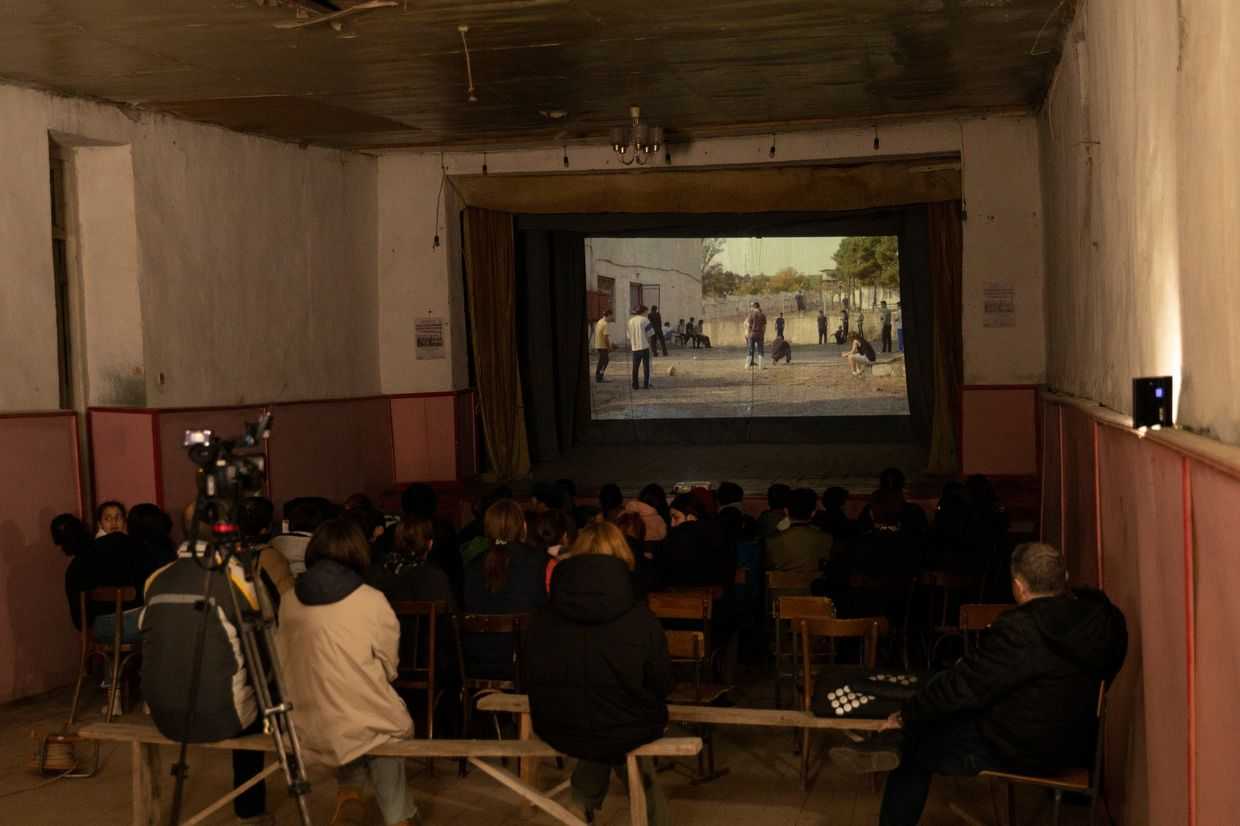
Ethnic Azerbaijani activists in southern Georgia are waging a legal fight to change the overwhelmingly monolingual policies of local authorities. Two lawsuits currently going through the courts could have implications for the language rights of the ethnic minorities across Georgia.
On 2 April, judge Nino Giorgadze of the Bolnisi District Court renewed hearings into a case brought by Nashir Ordukhanov. Nashir is a local ethnic Azerbaijani activist and law student who has been demanding that the local authorities publish information on their website and Facebook page in the Azerbaijani language.
Nashir, who is being represented by the Tbilisi-based group the Social Justice Centre (formerly EMC), told the court that ethnic Azerbaijanis were being deprived of important information and therefore the right to participate in the decision-making process because they did not speak Georgian.
Failing to provide information that the local population can understand, Nashir says, contradicts Georgia’s Local Self-government Code, an organic law that obliges local authorities to ‘take measures to inform the population of the municipality of their activities’ in order to ‘ensure citizen participation in the exercise of local self-government’.
The lack of bilingual information, Nashir and the Social Justice Center say, also violates Georgia’s Law on State Language, which mandates that in ‘municipalities where representatives of national minorities are settled in communities, appropriate information may be indicated in the language of those national minorities as well.’
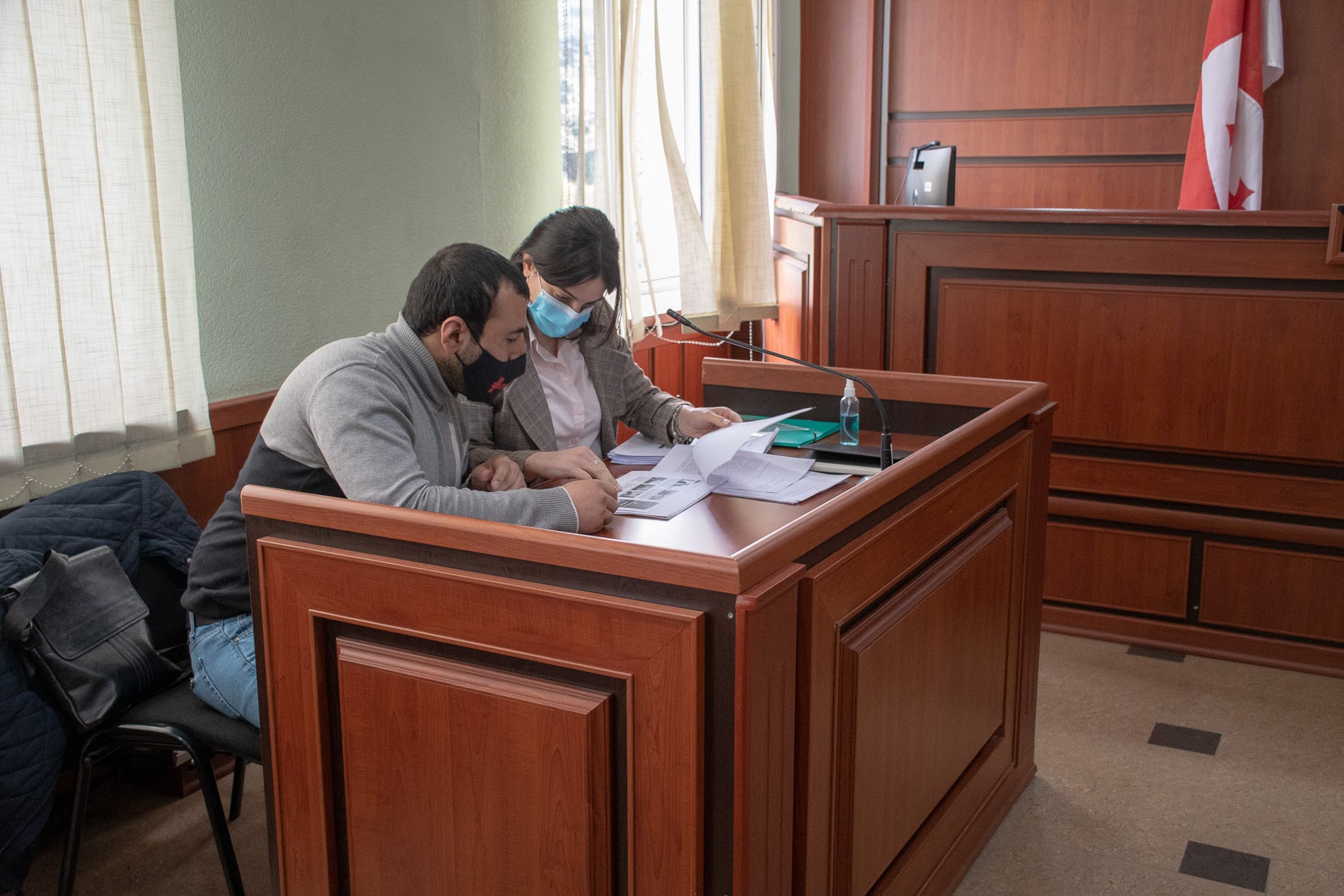
In 2014, Georgian authorities reported there were 233,000 ethnic Azerbaijanis nationwide, making them Georgia’s largest minority making up 6.3% of the population. Ethnic Azerbaijanis are the majority — over 63% — in the Bolnisi Municipality.
While Bolnisi City Hall says they translate ‘some’ official information into Azerbaijani, they remain insistent that they are not obliged to do more than this.
The local authorities argue that the Georgian Constitution is also on their side: the only minority official language recognised by the Georgian constitution is Abkhazian, and only in Abkhazia; hence, Bolnisi authorities maintain they do not have to publish in a language other than Georgian.
A new generation
Talking to OC Media before the hearing on 2 April, Nashir said he was optimistic about his case but did not rule out taking it to the European Court of Human Rights if needed.
He represents a new generation of ethnic Azerbaijanis in Georgia who are increasingly bilingual and learnt Georgian as part of his formal education. Relatively more socially mobile, this younger generation is also more socially mobile, and has stronger ties with the country’s wider civil society concentrated in the capital Tbilisi.
[Read more about education efforts on OC Media: Integration starts in the village]
Nashir, like his friend Rashan Ziadaliev, who attended his court hearing, is among the beneficiaries of the 1+4 programme launched by the Georgian government in 2009, offering ethnic minority groups an intensive one-year Georgian language teaching programme before regular university studies.
Ironically, Nashir and Ziadaliev say their Georgian has improved much since they both filed lawsuits against the local authorities. But, they argue the reality for other local residents won’t be helped by this, especially older people.
The municipalities where Ordukhanov and Ziadaliev live were the first to be put under quarantine when the COVID-19 pandemic hit Georgia.
Nashir remarked that this was when the authorities of Marneuli and Bolnisi started publishing information on Facebook both in Georgian and Azerbaijani, to ensure the public was correctly informed about the public health precautions. However, the practice was mostly dropped after the lockdown was lifted.
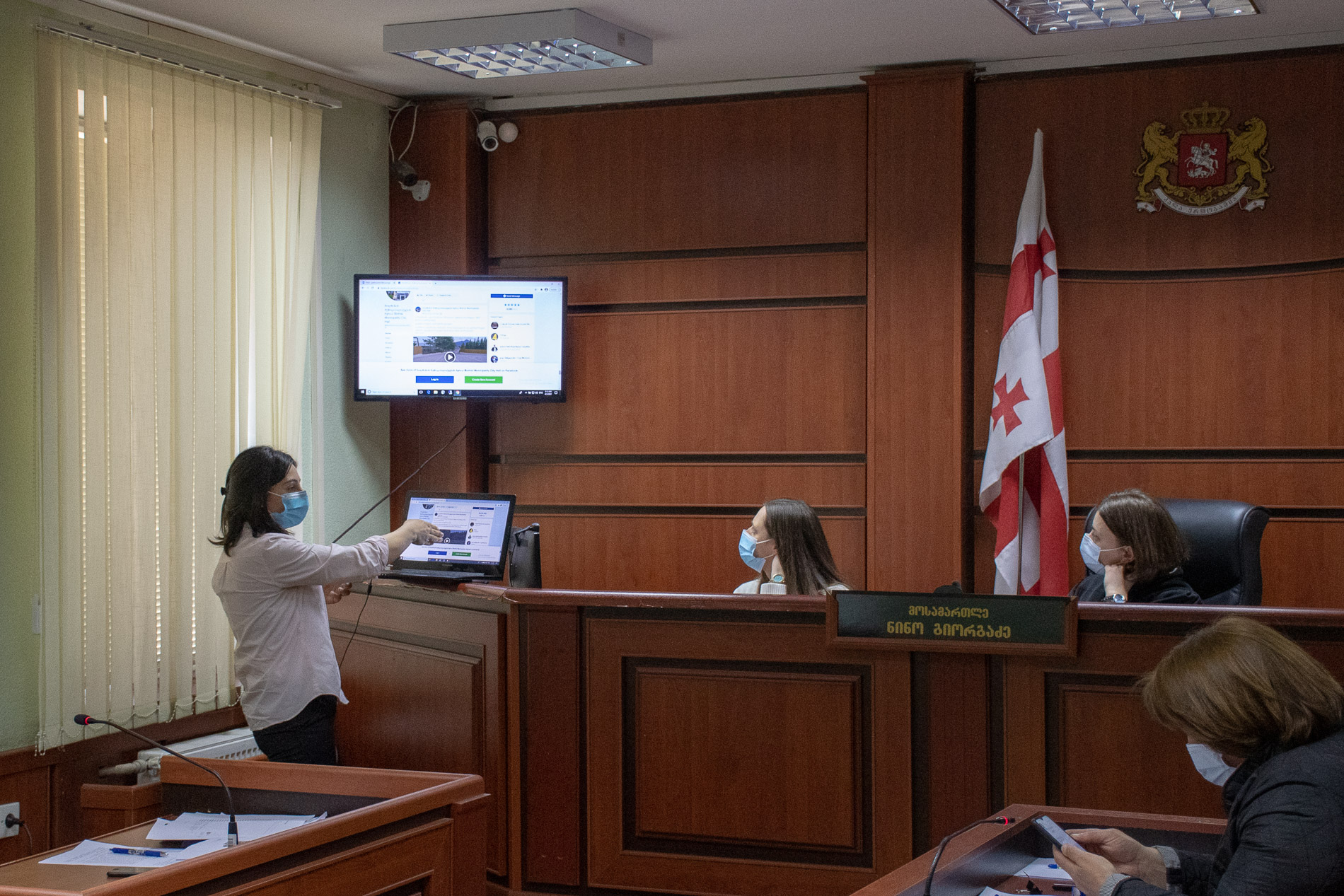
The recent activism for equal civil rights comes at a time of increasing anti-Azerbaijani sentiment among Georgian ultra-conservative groups. Protests by residents of Marneuli and Bolnisi against the anti-coronavirus lockdown last year served as another excuse to demonise them on social media.
[Read more on xenophobia experienced first hand: ‘They say Georgia is a tolerant and diverse country; these are just words’]
‘What about ethnic Georgians in Azerbaijan?’
Rashan Ziadaliev went to Bolnisi District Court not only to follow his friend’s case. He also has his own case pending at the same court after he filed a lawsuit against the authorities of Marneuli, where he lives.
According to the 2014 national census, ethnic Azerbaijanis represent nearly 84% of Marneuli Municipality, the home of over 107,000 people.
Rashad is contesting a 2019 decision by both the municipal council (sakrebulo) and the mayor’s office in Marneuli not to accept a written appeal to them in Azerbaijani language. Instead, they insisted that Rashad get his document translated into Georgian and notarised.
Both legislative and executive branches in Marneuli underline that they expect citizens to lodge written appeals only in Georgian.
‘This problem has existed for years because a large majority of Marneuli residents don’t speak the state language, and therefore, they are unable to submit a letter; when they go to Marneuli [City Hall] chancellery, there are people employed there who only know Georgian’, Ziadaliev tells OC Media.
‘A 70-year-old granny has to roam outside in her village asking around if anyone speaks Georgian so she can get the information she needs from the local authorities’.
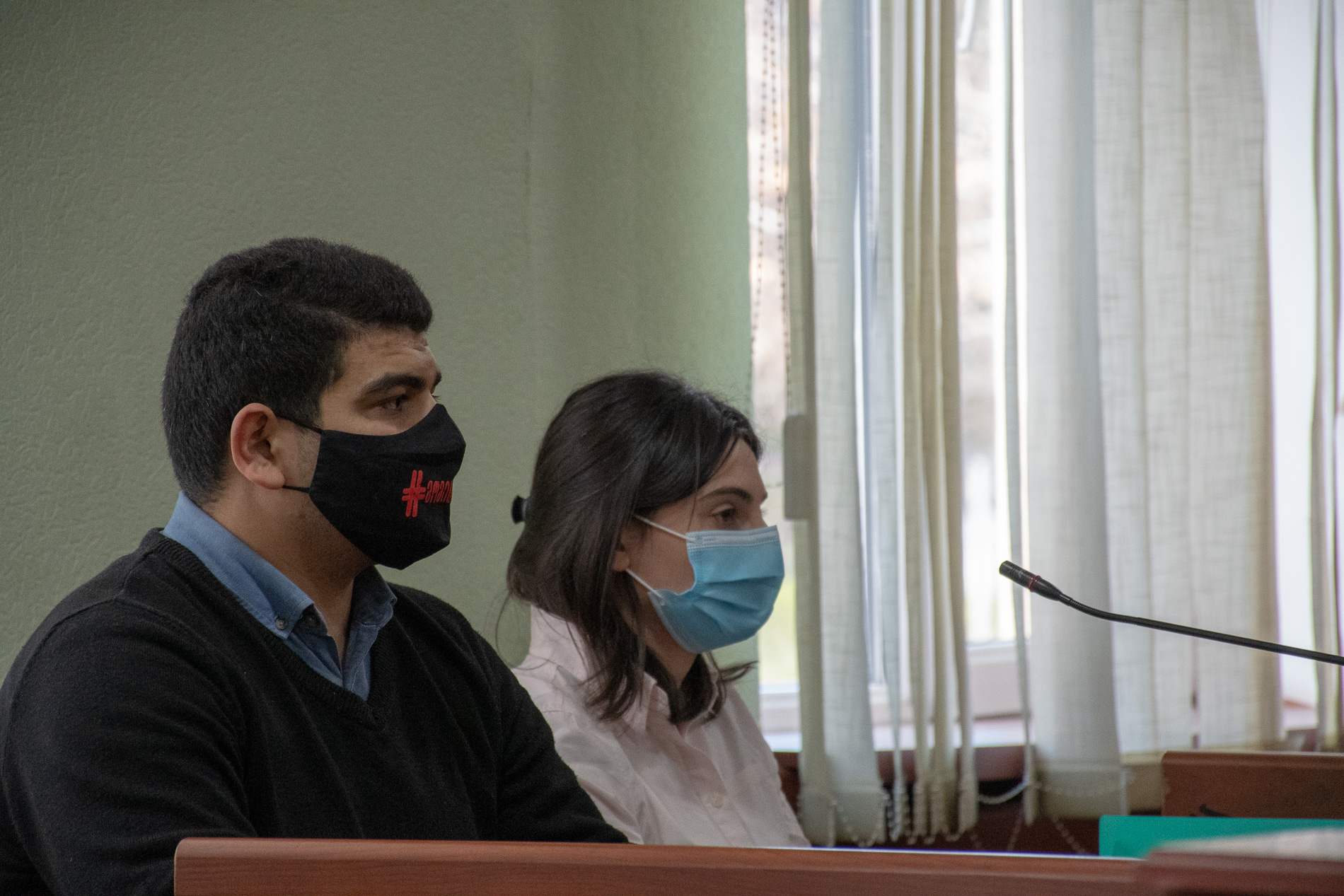
The European Charter for Regional or Minority Languages, of which Georgia is a signatory, calls on states to encourage the ‘possibility for users of regional or minority languages to submit oral or written applications in these languages’. It also calls for the ‘publication by regional authorities of their official documents also in the relevant regional or minority languages’.
Bolnisi authorities maintain that they are not in breach of the charter, as according to them, they employ an ethnic Azerbaijani member of staff who personally helps local residents to get their message through. They also say there is a representative of the mayor’s office in every village who informs the public about important decisions, including social services and state programmes.
In any case, Georgia has not ratified the European Charter for Regional or Minority Language.
Similar to Bolnisi, Marneuli Municipality authorities also cite the Georgian Constitution mentioning only the one official language in their area. Last February, however, Marneuli City acting Mayor Zaur Tabatadze was less legalistic in his fervour to follow the existing language policy.
‘Georgians also live in Azerbaijan, right? Is it allowed to lodge an appeal in Georgian in Azerbaijan, Gakh District?’, Tabatadze asked rhetorically on 19 February.
Opponents of Azerbaijani minority rights in Georgia frequently cite the restricted rights of ethnic Georgians living in the northwest of Azerbaijan as an argument against more robust rights for ethnic Azerbaijanis in Georgia.
‘We are citizens of Georgia’, Rashan says to this. ‘We serve in the Georgian army, serve Georgia, hence it shouldn’t be important what is happening in Azerbaijan… We should not be a matter of diplomatic bargaining [with Azerbaijan].’
The author acknowledges Radio Marneuli for their original report of Rashan Ziadaliev’s case.



